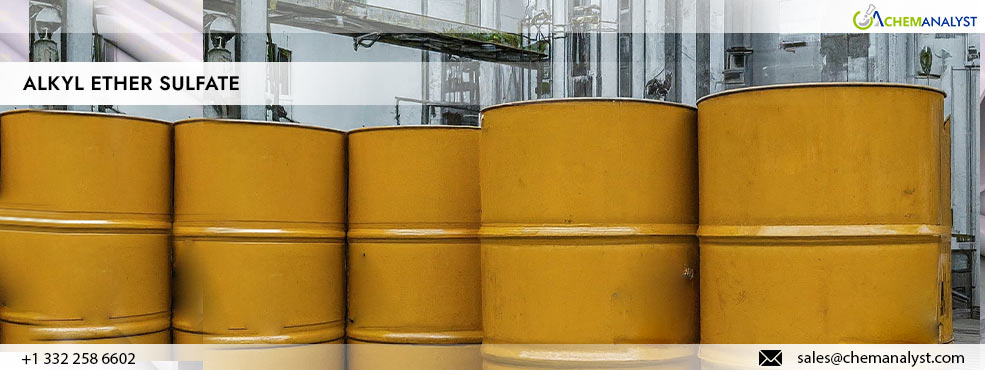Welcome To ChemAnalyst

In late September 2024, the global AES (Alkyl Ether Sulfate) market experienced a notable surge as production costs escalated. Prices for AES increased by approximately 4% across both the US and Asian markets in the week ending September 20. This rise was primarily driven by a significant 15% increase in the price of Fatty Alcohol, a critical feedstock, in major Southeast Asian exporters like Malaysia and Indonesia. This spike in Fatty Alcohol prices can be traced back to a 2.6% rise in palm oil prices in Southeast Asia during the latter half of September, further inflating AES production costs.
In Indonesia, palm oil exports fell by 7.6% year-on-year, totalling 15.06 million tonnes, while production is expected to drop by 1 million tonnes to 53.8 million tonnes due to last year's dry weather affecting yields, according to the Palm Oil Association of Indonesia. Meanwhile, Malaysia saw a modest 2.8% increase in palm oil production from July to August 2024, reaching 1.89 million tonnes, but exports decreased by 9.8% to 1.52 million tonnes. This decline has created a scarcity in Fatty Alcohol production, pushing AES production costs higher across Asia and leading to increased import prices in the US.
Demand for AES has been mixed globally. While the North American market showed positive growth, driven by strong consumer spending, demand in Asia remained tepid. Seasonal trends typically result in lower AES demand during the monsoon season, which was evident in September 2024. FMCG companies, particularly those heavily reliant on rural markets, faced challenges in meeting sales targets reflecting the moderate demand conditions for AES. HUL, the largest FMCG player in India, reported a 6% year-on-year decline in net profit to Rs 2,406 crore for Q4 of FY24. However, the company did report a 2.7% rise in net profit to Rs 2,538 crore year-on-year, driven by a slight recovery in rural sales in Q1 of FY25.
In contrast, the US market for AES showed resilience, with consumer card spending rebounding by 1.0% year-on-year in August, following two months of decline as the data released by US Census Bureau. Non-essential spending also rose by 0.7%, buoyed by the late arrival of the holiday season, creating a positive sentiment for expenditure despite lingering seasonal concerns.
Overall, AES prices are anticipated to keep rising due to seasonal impacts on palm oil production. This trend is expected to be reinforced by increasing demand for biodiesel in Indonesia. Market insights indicate that Indonesia plans to transition to B40 biodiesel, which incorporates 40% palm oil, starting next year. This change will replace the existing B35 blend, which contains 35% palm oil-based biodiesel. As the world's largest producer of palm oil, Indonesia aims to enhance its biodiesel blend to reduce energy imports and bolster domestic palm oil consumption.
We use cookies to deliver the best possible experience on our website. To learn more, visit our Privacy Policy. By continuing to use this site or by closing this box, you consent to our use of cookies. More info.
